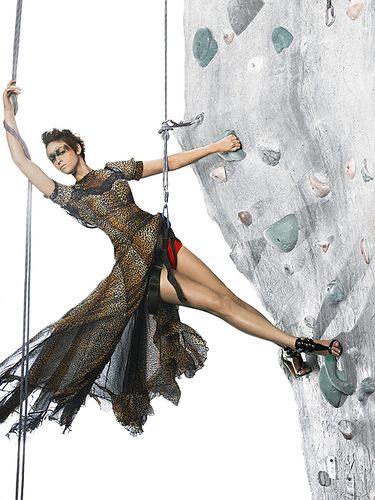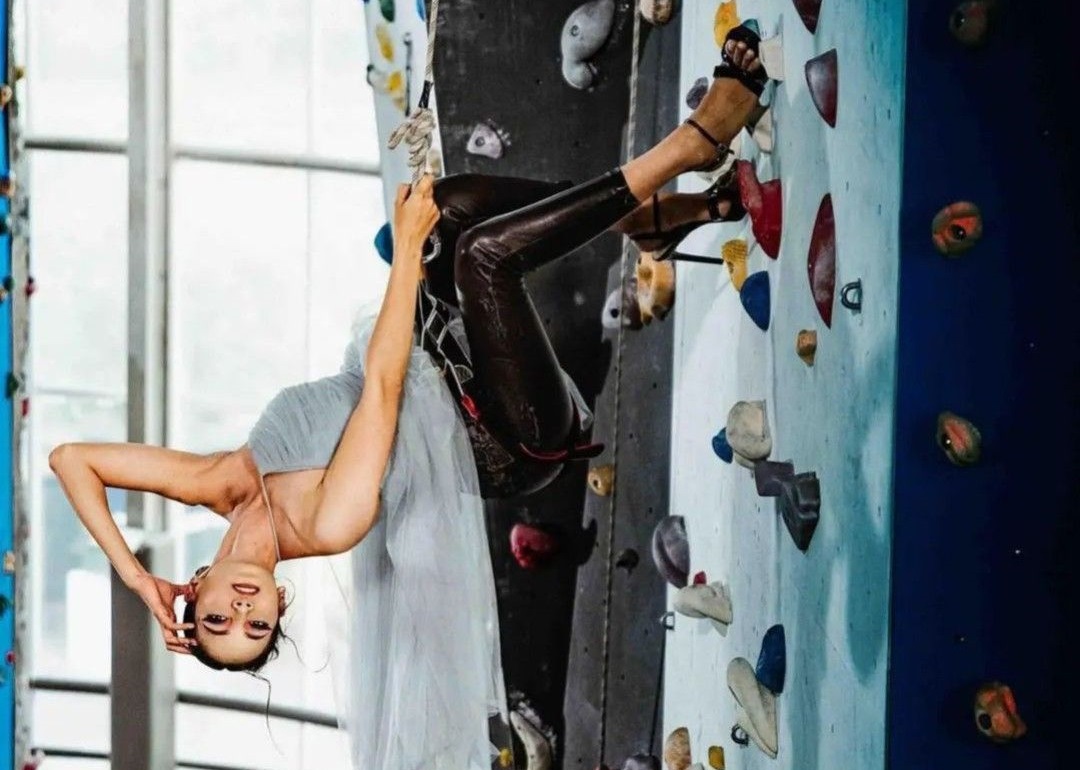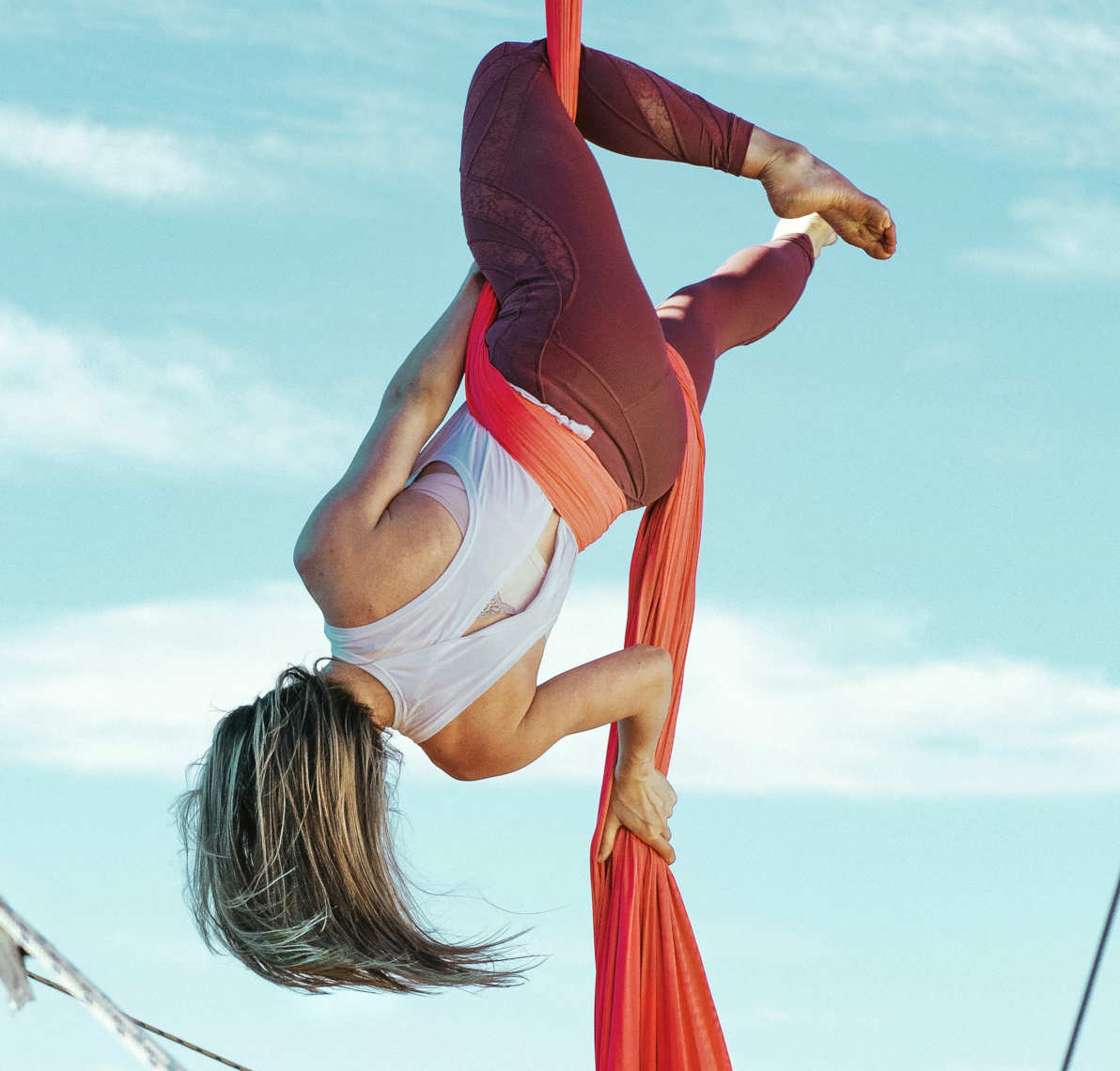A Comparison and the Psychological Benefits for Women of Lifting Their Own Weight
In recent years, activities such as pole dance and climbing have gained popularity among women of all ages. These disciplines, seemingly different, share a key element: the ability to lift and support one’s body weight. This aspect not only offers incredible physical benefits but also has a significant impact on the emotional and psychological well-being of practitioners. Let’s explore how these activities compare and the psychological benefits that come from regular practice.
Pole Dance: Strength and Grace
Pole dance is a form of exercise that combines elements of dance and gymnastics, using a vertical pole as the main apparatus. Often associated with sensual performances, pole dance is actually a discipline that requires strength, flexibility, and endurance.
-
Psychological Benefits:
- Self-Esteem and Confidence: Pole dance helps build a positive body image. The ability to perform complex movements and lift one’s body weight strengthens self-confidence.
- Self-Expression: Dance allows for unique creative expression, helping to release emotions and improve mood.
- Overcoming Fears: Overcoming the fear of falling or not completing a complex move fosters a mindset of resilience and determination.
Climbing: Challenge and Conquest
Climbing is a sport that involves ascending natural rock faces or artificial climbing walls. It requires a mix of physical strength, coordination, and problem-solving skills.
-
Psychological Benefits:
- Concentration and Mindfulness: During climbing, concentration is crucial. This intense focus can help reduce stress and promote a sense of calm and awareness.
- Sense of Achievement: Each completed climb represents a personal triumph, increasing the sense of accomplishment and self-efficacy.
- Socialisation and Support: Climbing is often practised in groups, creating a strong sense of community and mutual support, which is essential for emotional well-being.
Comparing Pole Dance and Climbing
-
Similarities:
- Both disciplines require and develop muscle strength, particularly in the upper body and core.
- Practicing both pole dance and climbing requires significant mental engagement and the ability to overcome physical and psychological challenges.
- Women who engage in these activities report improvements in self-confidence and body perception.
Differences:
- Setting: Pole dance takes place in a studio, often accompanied by music, while climbing can occur both in gyms and in nature.
- Elements of Challenge: Pole dance is more oriented towards artistic expression, while climbing is more focused on solving physical and mental challenges related to the route.
The Profound Psychological Impact of Lifting One’s Body Weight for Women
The ability to lift one’s body weight has a profound impact on women’s psyche. This ability not only enhances physical fitness but also fosters significant psychological benefits that contribute to overall well-being. Let’s delve deeper into how this capability influences resilience, autonomy, and stress reduction.
Reinforces Resilience
- Facing and Overcoming Physical Challenges: Lifting one’s body weight requires considerable strength, balance, and coordination. Each successful lift or movement in pole dance or climbing represents a tangible achievement. This process of setting goals, striving to achieve them, and overcoming physical challenges mirrors the psychological process of developing resilience.
- Promoting a Growth Mindset: Resilience is closely tied to the concept of a growth mindset – the belief that abilities and intelligence can be developed through dedication and hard work. When women repeatedly face physical challenges and succeed in lifting their body weight, they internalise the belief that effort leads to improvement. This mindset extends beyond physical activities to other life challenges, fostering perseverance and a proactive approach to problem-solving.
Promotes Autonomy
- Feeling Strong and Physically Independent: Physical strength is often linked to feelings of independence and self-sufficiency. When women are able to lift their body weight, they experience a tangible sense of control over their bodies and their environment. This physical autonomy translates into psychological empowerment, instilling a belief in their capacity to manage and overcome obstacles in life.
- Empowerment Reflected in Everyday Life: The empowerment gained from physical strength and autonomy in activities like pole dance and climbing is not confined to these activities alone. Women who feel strong and capable in their physical pursuits are likely to carry this sense of empowerment into their daily lives. This can manifest as increased confidence in professional settings, more assertiveness in personal relationships, and a general sense of capability and self-worth.
Reduces Stress
-
- Endorphin Release and Improved Mood: Intense physical activity, such as lifting one’s body weight, triggers the release of endorphins – the body’s natural mood elevators. These chemicals interact with receptors in the brain to reduce the perception of pain and trigger positive feelings. This physiological response can lead to an improved mood, helping to alleviate symptoms of anxiety and depression.
- Anxiety and Stress Reduction: Physical exertion also serves as a powerful distraction from stressors. When engaged in demanding physical activities, the mind focuses on the immediate challenge, providing a break from worries and reducing overall stress levels. Regular participation in activities that involve lifting body weight can therefore serve as an effective stress management tool, promoting a calmer, more balanced mental state.
Conclusion
Both pole dance and climbing offer women unique opportunities to improve their physical strength and emotional well-being. The ability to lift and control one’s body not only strengthens muscles but also the mind and spirit. These disciplines teach women that they can overcome their limitations, both physical and mental, fostering a sense of security, self-esteem, and happiness.




